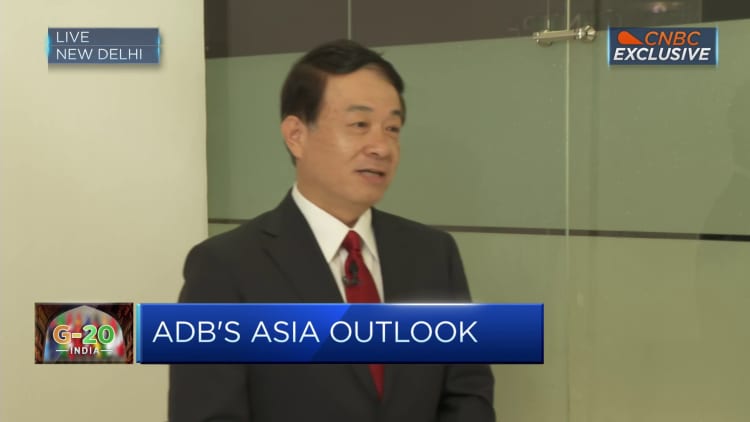
Asia and the rest of the world face “immense” challenges, and the Asian Development Bank must work with others to address those issues, its director general told CNBC on Friday.
“The challenge that we are facing in this region and also globally, are immense, including climate change. pandemic and natural disasters,” Tomoyuki Kimura told CNBC’s Tanvir Gill on the sidelines of the G20 Summit held in the Indian capital of New Delhi.
After Covid, he explained, many countries had to borrow more money. “So this is a limitation for different countries to take more debt for their sustainable development and climate change.”
He said multilateral development banks “can and must take bold action to help address the challenges.”
The ADB “very much welcomes the efforts by all parties to ensure MDBs are well equipped to play this critical role,” he said, adding: “We also welcome India’s strong leadership advocacy for the importance of multilateralism.”
Additionally, the director general highlighted the need for ADB to increase its lending capacity in order to help countries achieve their climate goals, but emphasized that more needs to be done.
“First of all, we need to ramp up our lending capacity … but also, we need extra efforts to mobilize more money from private sector,” he said.
According to the World Bank, developing nations need more than $1 trillion per year to make significant headway in climate transition.
To aid in climate financing goals, Kimura called for the development of more pressing pipelines, de-risking projects, and reiterated the bank’s role in helping countries mobilize their domestic resources.
“We also need to play a very important role in overall debt issues,” Kimura said, highlighting that many countries have taken more debt following the pandemic.
In July, the United Nations reported that global public debt rose to a colossal record of $92 trillion in 2022.
“So this is a limitation for different countries to take more debt for their sustainable development and climate change,” Kimura said.
Kimura highlighted that the ADB is currently working on a capital adequacy framework, which if approved, could offer a “huge increase in lending capacity for the next decade and beyond.”









